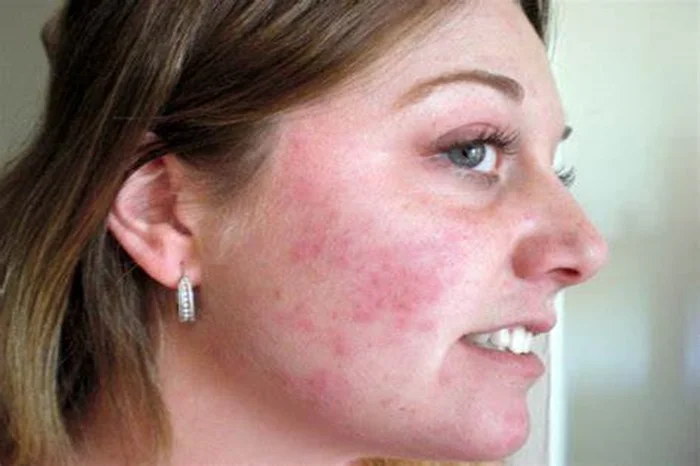Skincare routines are vital for maintaining healthy, glowing skin. They involve cleansing, moisturizing, and protecting the skin, but for some people, skincare can lead to an unexpected reaction—itchiness. Experiencing an itchy face after applying skincare products can be confusing and frustrating, especially if the products were chosen with care. This article explores the common reasons for facial itchiness after skincare and provides actionable advice to help address the issue.
What Causes Facial Itchiness After Skincare?
Facial itchiness after skincare can arise due to various factors, ranging from ingredient sensitivity to underlying skin conditions. Let’s examine these potential causes:
1. Allergic Reactions to Skincare Ingredients
Allergic reactions occur when your immune system identifies a specific ingredient as harmful, triggering an inflammatory response. Common allergens in skincare include fragrances, preservatives, and essential oils.
Fragrances: These are often added to improve a product’s scent but can irritate sensitive skin.
Preservatives: Ingredients like parabens and formaldehyde releasers may trigger allergies in certain individuals.
Essential Oils: Although natural, essential oils like lavender or tea tree oil can cause allergic reactions.
Signs of an allergic reaction include redness, swelling, itchiness, or hives on the face. This reaction may occur immediately or hours after product application.
2. Irritation From Harsh Ingredients
Some skincare products contain potent active ingredients designed to exfoliate, brighten, or treat acne. While effective, these can sometimes irritate the skin, leading to itchiness.
Acids: Alpha hydroxy acids (AHAs) and beta hydroxy acids (BHAs) are exfoliating agents that can irritate sensitive skin.
Retinoids: Retinol and tretinoin are powerful ingredients that can cause dryness and itching during the adjustment phase.
Alcohols: Certain alcohols in toners or cleansers may strip the skin of its natural oils, causing dryness and irritation.
3. Contact Dermatitis
Contact dermatitis is a condition where skin becomes inflamed after direct contact with an irritant or allergen. Two types of contact dermatitis may occur:
Irritant Contact Dermatitis: This happens when an ingredient damages the skin’s protective barrier, leading to itchiness and redness.
Allergic Contact Dermatitis: This involves an immune response to an allergen in the skincare product.
4. Compromised Skin Barrier
The skin barrier protects your face from external irritants and locks in moisture. If this barrier is weakened, it can lead to increased sensitivity and itching. Factors that may compromise your skin barrier include:
- Over-exfoliation
- Harsh cleansers
- Environmental stressors, such as cold weather or pollution
5. Dry Skin
Dry skin is more prone to itchiness, as it lacks sufficient moisture to maintain a healthy barrier. Using products that do not adequately hydrate or that further dehydrate the skin can exacerbate the issue.
6. Underlying Skin Conditions
Pre-existing skin conditions may make your face more susceptible to itchiness after skincare application. These include:
Eczema: A chronic condition causing itchy, inflamed skin.
Rosacea: A condition characterized by redness, sensitivity, and sometimes itching.
Psoriasis: An autoimmune disorder that leads to itchy, scaly patches on the skin.
7. Incorrect Product Usage
Using too much product or layering multiple actives without guidance can lead to skin overload, causing irritation and itchiness.
How To Identify the Cause of Facial Itchiness
Identifying the reason behind facial itchiness is the first step toward resolving the issue. Here’s how to investigate:
1. Keep a Skincare Journal
Record the products you use daily, noting any itchiness or other reactions. This can help identify patterns and pinpoint the culprit.
2. Perform a Patch Test
Before using a new product, apply a small amount to your inner wrist or behind your ear and wait 24-48 hours. If no reaction occurs, it’s likely safe for your face.
3. Consult a Dermatologist
If the itchiness persists or worsens, consult a dermatologist. They can conduct patch tests to identify specific allergens and recommend suitable products.
Preventing Facial Itchiness After Skincare
Prevention is better than cure. By adopting mindful practices, you can minimize the risk of itchiness:
1. Choose Products for Your Skin Type
Use skincare products specifically designed for your skin type, whether dry, oily, combination, or sensitive.
2. Opt for Fragrance-Free Formulas
Fragrance-free products reduce the risk of irritation, especially for sensitive skin.
3. Introduce New Products Gradually
Start with a small amount of any new product and gradually increase usage. This allows your skin to adjust.
4. Avoid Over-Exfoliation
Limit exfoliation to 1-2 times per week, depending on your skin’s tolerance. Avoid using multiple exfoliating products simultaneously.
5. Moisturize Regularly
Use a hydrating moisturizer to maintain your skin barrier and prevent dryness-related itchiness.
What To Do If Your Face Feels Itchy
If you experience itchiness after applying skincare, here’s what you can do:
1. Stop Using the Product
Discontinue the suspected product immediately and observe if the itchiness subsides.
2. Soothe the Skin
Apply a gentle, fragrance-free moisturizer or an over-the-counter hydrocortisone cream to calm the skin.
3. Avoid Scratching
Scratching can worsen irritation and potentially lead to infection.
4. Use Cold Compresses
A cold compress can provide relief by reducing inflammation and soothing the skin.
When To Seek Medical Advice
While occasional itchiness can be managed at home, certain situations warrant professional intervention:
- Persistent or worsening symptoms
- Severe swelling, blistering, or peeling
- Signs of infection, such as pus or warmth around the affected area
Conclusion
Facial itchiness after skincare can stem from various causes, including allergic reactions, irritants, or pre-existing skin conditions. By understanding these factors and taking preventive measures, you can create a skincare routine that works harmoniously with your skin. Always prioritize gentle, hydrating products and consult a dermatologist for persistent issues. Your skin deserves care that nourishes, not irritates.
Related topic:
Should I Do My Skincare After a Shower?
Does Cindy Crawford Skin Care Really Work?
What Is the Top-Rated Skin Care Line?


